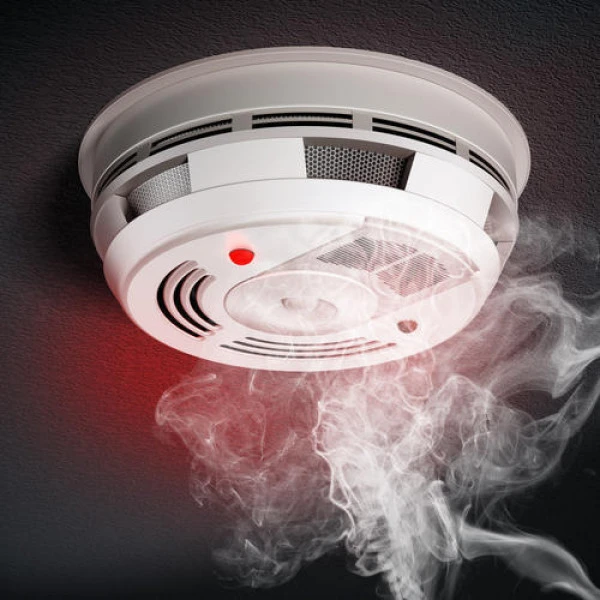The Consumer watchdog found that certain smoke alarms on sale to the public ‘don’t work or are too slow to sound’, presenting a ‘potentially lethal’ situation for UK consumers.
This investigation saw Which? test five smoke alarms in accordance with the British standard BS EN 14604, with fires involving wood, cotton, plastics and solvents tested with two different samples of each model. The company noted that the investigation had ‘again highlighted the safety risks of cheap imported alarms available online’, with one – often listed as the SS-168 but also ‘often unbranded’ – failed to detect smoke in seven of eight of the tests.
The alarm’s first sample failed to detect smoke ‘in any’ of the four tests carried out, while the second sample failed to sound in three tests. Which? also warned that some of the products tested ‘falsely claim to comply’ with the standard, finding in June that 98 of the cheapest listings for smoke alarms on eBay featured the SS-168. Having notified eBay, the site has removed 100 listings for identical looking alarms, but ‘dozens’ of other listings have been added since of the same units.
With this a ‘growing issue of concern’, Which? cited its investigation in June that ‘led to dozens of unbranded and dangerous carbon monoxide alarms being removed’ from Amazon and eBay after failing safety tests, but even models available in high street stores ‘struggled’ in testing. Specifically, the Honeywell XS100 unit ‘failed to sound’ in two of the eight tests, despite having the Kitemark safety label.
This unit’s first sample did not sound during the wood test, and its second sample ‘sounded too late’ when responding to the plastic test, and as a consequence Which? has listed both the SS-168 and the Honeywell XS100 as “Don’t Buys”. In testing undertaken in 2017, the Devolo Home Control Smoke Detector was also made a “Don’t Buy” after a sample tested failed to sound in both the plastic and solvent fires.
Among other findings identified in the recent test were that there were ‘serious concerns’ about the time taken by some alarms to detect smoke, with two samples of the FireAngel SO-601 unit detecting smoke and sounding in all four test scenarios, but ‘both were incredibly slow’. In the wood test, this unit was ‘more than five minutes slower’ than a Nest Protect unit certified “Best Buy” by Which?, and in the cotton test it was two and a half minutes slower.
Despite this particular unit meeting BS EN 14604, Which? added its belief that the testing performance ‘demonstrates how the current standard continues to reward slow-reacting alarms in almost all fire situations’. Which? has also recently joined the smoke alarms standards committee, with the aim of ‘pushing to strengthen the requirements needed for the products to be sold in the UK’.
Findings from the tests have been passed to the Office for Product Safety and Standards, with Which? requesting that the office ‘investigates the unbranded smoke alarms that falsely claim to meet safety standards, and those that didn’t detect smoke reliably in the tests’. The consumer group believes it is ‘crucial’ that the office takes ‘immediate and effective steps’ to tackle the ‘widespread availability of unsafe products on online platforms’.
This would include taking a ‘more active role in market surveillance’, so that it can ‘identify products that pose a potential safety risk and remove them from sale before they enter people’s homes’. Alex Neill, managing director of home products and services at Which?, said: ‘Smoke alarms that quickly and loudly alert people to a fire are vital in keeping people safe from danger, so it’s shocking that some of the products we’ve tested are either far too slow or don’t work at all in some circumstances.
‘Anyone who has one of these alarms should replace it straight away. We think the safety standards need to be strengthened and the Government must take action to prevent products that falsely claim to meet safety standards from entering people’s homes.’
Original Source: thefpa.co.uk





